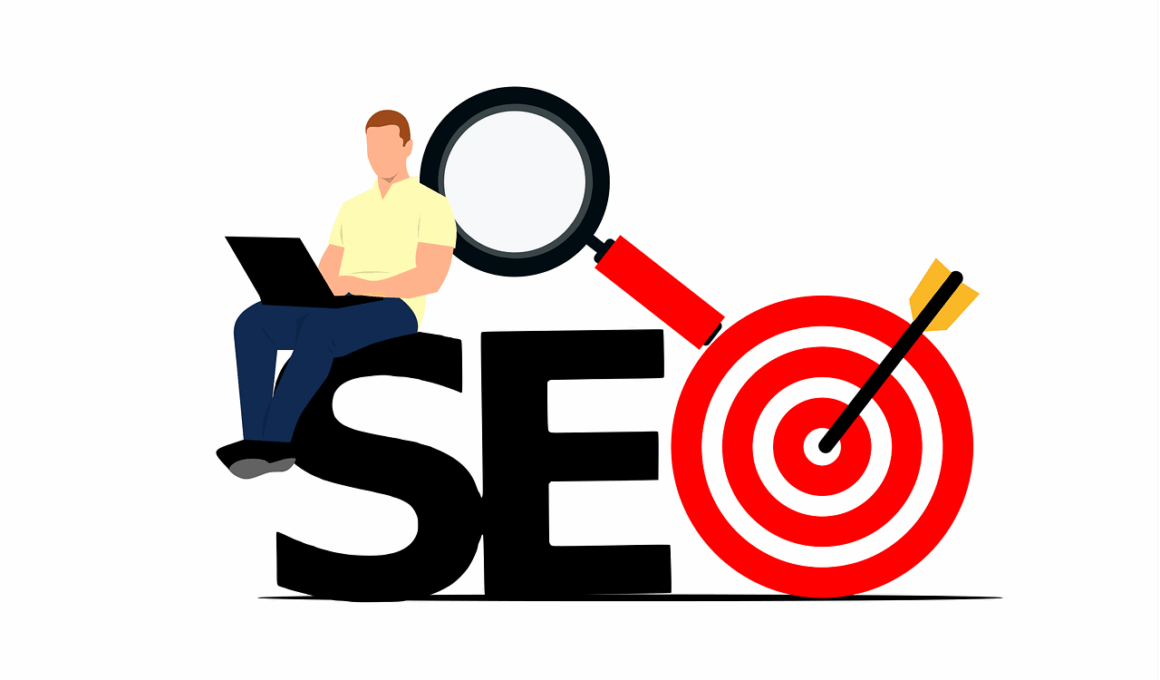Technology Adoption Trends in Competitive Marketing Strategies
Understanding technology adoption is crucial for businesses seeking a competitive edge in marketing. As the landscape evolves, companies must adapt their strategies to incorporate new technologies. This involves utilizing analytics, customer relationship management (CRM), and digital tools that enhance engagement. Effective adoption means not just using new tools but leveraging them to improve business operations. Companies that embrace relevant technologies often see increased efficiency, allowing them to respond quickly to market changes. Furthermore, data-driven insights obtained through these technologies empower marketers to create personalized experiences for customers. Consumers today expect brands to understand their preferences and behaviors, thus driving loyalty. Technology can bridge this expectation gap and foster stronger relationships. Firms should also pay attention to emerging trends such as artificial intelligence and machine learning, which refine customer targeting and segmentation strategies. The inclusion of these technologies creates a more dynamic marketing environment. Ultimately, businesses that successfully adopt technology will not only streamline operations but can also innovate their approach to reach consumers more effectively in competitive markets. Brands must remain vigilant in tracking technology advancements and market trends to maintain their competitive edge.
Key Technologies Transforming Marketing
Several key technologies are at the forefront of transforming marketing strategies today. Automation tools, social media platforms, and big data analytics are increasingly utilized by marketers. Automation plays a vital role in managing repetitive tasks efficiently, allowing teams to focus on strategy and creativity. By implementing marketing automation software, businesses can optimize campaigns while targeting the right audience effectively. Social media platforms serve as essential channels for interaction, branding, and analytics. Additionally, tools such as Customer Relationship Management (CRM) systems provide valuable customer insights that guide marketing decisions. Meanwhile, big data analytics helps companies capture and analyze vast amounts of consumer data. Marketers can identify patterns and trends, enabling the development of highly targeted campaigns with tailored messaging. Companies can also assess the effectiveness of their marketing efforts in real-time, adjusting strategies as necessary. The integration of these technologies empowers marketers to adopt a more customer-centric approach, fostering brand loyalty and increasing conversion rates. By staying informed about these technologies, brands can revolutionize their marketing approaches and enhance customer experiences in the process.
Competition drives the need for technology adoption in marketing. Businesses that recognize technological shifts can respond proactively, setting themselves apart. As rival companies seek to capture market share, those that embrace new advancements rapidly can benefit significantly. Customizing customer engagements based on collected data positions brands as forward-thinking leaders in their industry. Furthermore, companies can engage consumers on various platforms, including mobile apps and websites. By optimizing these platforms with emerging technologies, brands improve user experiences, ultimately leading to higher conversion rates. Competitors may lag if they do not prioritize technology adoption, creating opportunities for early adopters to expand their market reach. The willingness to invest in new marketing technologies should align with a company’s strategic vision. This commitment allows firms to innovate continuously, improving existing processes and exploring new avenues. Staying competitive in today’s fast-paced market also requires a robust understanding of the technology ecosystem. Brands must cultivate a testing culture, embracing the inevitability of trial and error as part of the process. Each technology adapted or adopted can further inform strategies, driving ongoing improvements and better aligning marketing goals with customer expectations.
The Role of Data Analytics
Data analytics plays a transformative role in guiding marketing strategies in the contemporary landscape. Companies that leverage data analytics can unveil insights that drive better decision-making and strategic development. By analyzing customer behavior and preferences, brands can tailor products and marketing messages to meet specific needs. Campaigns driven by data are significantly more effective, as they align closely with the target audience’s interests. In addition, real-time analytics allow companies to swiftly adjust marketing efforts based on immediate consumer responses and market trends. Building an analytical framework ensures that measurements align with set goals and KPIs, enabling marketers to assess success effectively. Moreover, predictive analytics introduces an element of foresight, offering insights into future customer behaviors and market opportunities. This capability provides businesses with a substantial edge over competitors, as they can preemptively adapt their strategies. Integrating analytics into marketing processes fosters a data-informed culture, empowering teams to experiment and innovate while minimizing risk. By investing in advanced analytical tools, companies enhance their capacity to adapt and thrive in an ever-evolving landscape.
Moreover, technology adoption supports collaboration between marketing and other business functions. By integrating marketing efforts with sales, service, and product development, organizations can create a holistic strategy that reflects customer needs better. Collaboration tools enhance communication and information sharing, leading to unified objectives across departments. This synergy fosters innovation, allowing for the rapid development and testing of new ideas. When departments work together, they can more easily capitalize on emerging market opportunities or address challenges swiftly. Additionally, integrated customer feedback collected through various channels feeds insights into the marketing strategy, ensuring relevance and responsiveness. Implementing project management tools enables teams to keep track of campaigns easily over time. Centralized analytics help monitor the performance of these efforts, ensuring alignment with overall business strategy goals. Companies that focus on cross-departmental collaboration powered by technology are more agile and adaptive. This agility becomes vital in navigating complex market landscapes and competitor advancements. In summary, collaborative technology solutions lead to enhanced performance, strategic alignment, and an improved ability to innovate, exhibiting a strong competitive advantage.
Future Trends in Technology Adoption
As we explore future trends in technology adoption, a few areas will dominate competitive marketing strategies. Firstly, artificial intelligence (AI) and machine learning (ML) will continue reshaping the marketing landscape. They enable businesses to automate processes, personalize outreach, and enhance customer interactions. The predictive capabilities of these technologies are invaluable, allowing companies to understand consumer behavior better. Additionally, organizations are expected to leverage augmented reality (AR) and virtual reality (VR) for immersive marketing experiences. These technologies present exciting opportunities for brands to engage customers uniquely. For instance, AR can help customers visualize products in their space before buying. Meanwhile, voice search technology is rapidly gaining popularity, prompting businesses to optimize their content accordingly. The increasing use of chatbots will reshape customer service and engagement, providing immediate access to information. As we move into a more connected world, the Internet of Things (IoT) will also play a vital role by providing rich data sources that inform marketing strategies. Businesses must remain adaptable, continually reviewing how to incorporate these innovations into their operations to maintain a competitive positioning effectively.
Companies that focus on sustainability will also see technology adoption as a crucial element. In an era where consumer consciousness around environmental impact is surging, brands can leverage technologies that support sustainable practices. Utilizing tools for better resource management, energy efficiencies, and waste reduction can enhance brand loyalty. Moreover, sustainable technology solutions will allow companies to track their carbon footprints and implement more eco-friendly production processes. As consumers increasingly support environmentally responsible brands, technology plays a pivotal role in establishing credibility. This commitment to sustainable growth will not only attract customers but also foster partnerships with like-minded organizations. Innovative supply chain management technologies also enable businesses to optimize processes and minimize environmental impacts. Brands that embrace sustainable technology will capture the attention of a discerning audience, setting themselves apart in the marketplace. Furthermore, as regulators enforce stricter environmental policies, companies aligned with sustainability principles will be better positioned to comply and even lead in their industries. Investing in sustainable technologies is not merely a choice; it’s becoming integral to remaining competitive and relevant as customer priorities evolve.
Conclusion and Strategic Considerations
In conclusion, the pathway to harnessing technology adoption for competitive marketing is multifaceted. Businesses must continuously assess and implement technological advancements that align with consumer expectations and industry changes. Sustaining competitiveness requires proactive engagement with the evolving landscape of digital tools and platforms. Companies should establish a clear strategy focused on integrating technological solutions across departments, fostering collaboration, and aligning objectives. Understanding consumer behavior through data-driven insights remains essential while influencing marketing strategies. Additionally, incorporating innovation around sustainability will resonate with consumers and bolster brand reputation. As emerging technologies like AI, VR, and IoT reshape marketing opportunities, firms should be agile, adaptable, and willing to pivot strategies. Continuous learning will empower brands to respond effectively to trends and shifts in consumer preferences. The journey of consistent technology adoption is ongoing. Brands must remain committed to evolving and innovating their practices while delivering exceptional value to customers. Companies that embrace this mindset will not just survive but thrive in competitive markets, ultimately shaping the future of marketing strategies for years to come.





